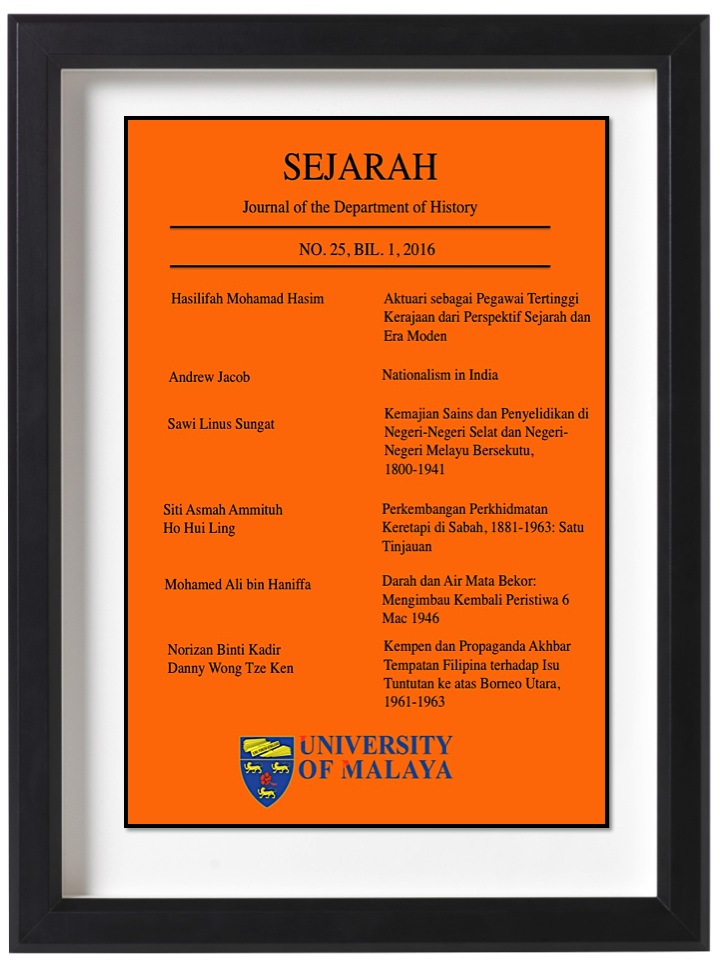NATIONALISM IN INDIA
DOI:
https://doi.org/10.22452/sejarah.vol25no1.2Abstract
This article is aimed at an analysis of the imagining of Indian Nationalism and in locating scholarship that highlights such nationalism’s inability to encompass the intense cultural diversity of the country. The article reviews a) early writings on Indian Nationalism that insisted on some form of homogenising civilizational core that would promote a sense of ‘Indian-ness’ above group identities to b) current scholarship’s understanding of Indian Nationalism as a nation of multiple histories and voices not needing any sort of homogeneity and locating firmly the Nation as a site of debate and dispute. It is at this point that a reading of B.R.Ambedkar’s conception of Indian nationalism provides a unique insight into the current thinking on the imagining of the nation. Ambedkar argues that democracy can provide for a site of debate and dispute and also the much needed homogeneity or sense of belonging that is required among peoples for effective non-ascriptive nation building. The article also analyses how this version of democracy can be viewed as a progenitor of deliberative democracy formulated by Jürgen Habermas and at the same time provide for meaningful perspective on possibly solving some of the issues that Habermas’ conception failed to answer.






